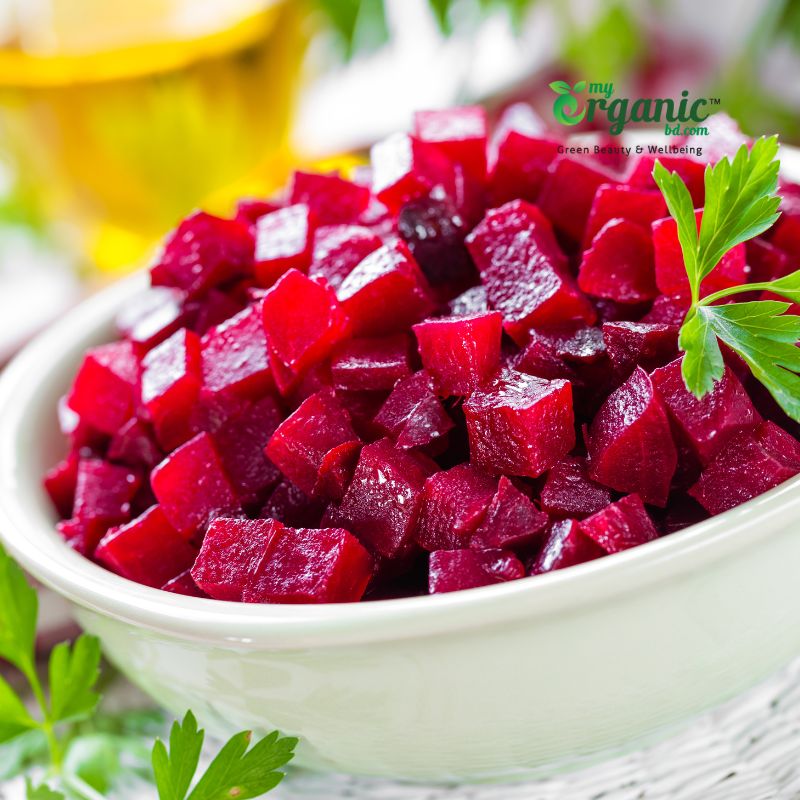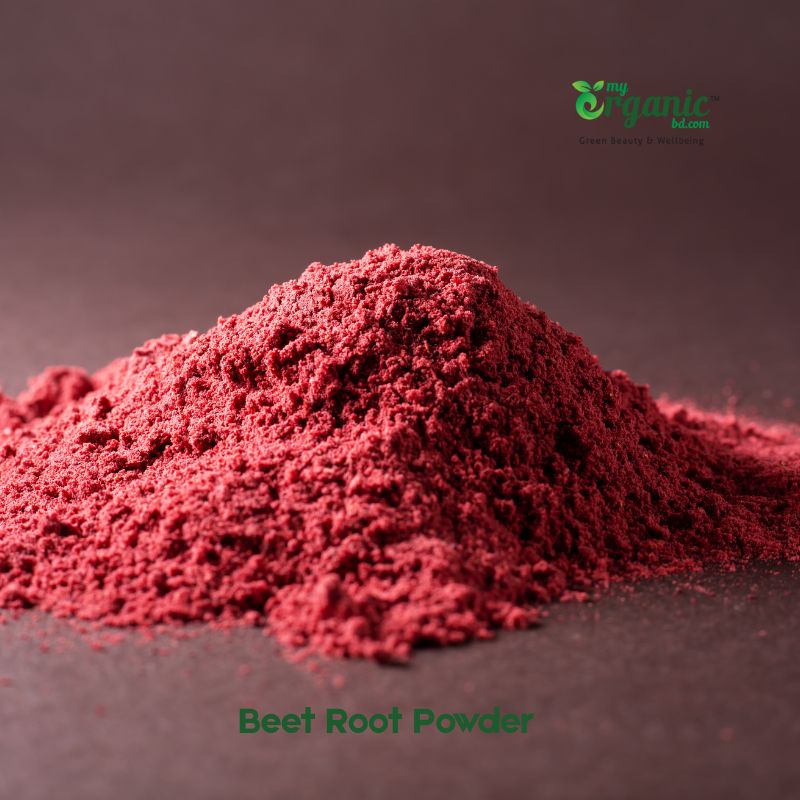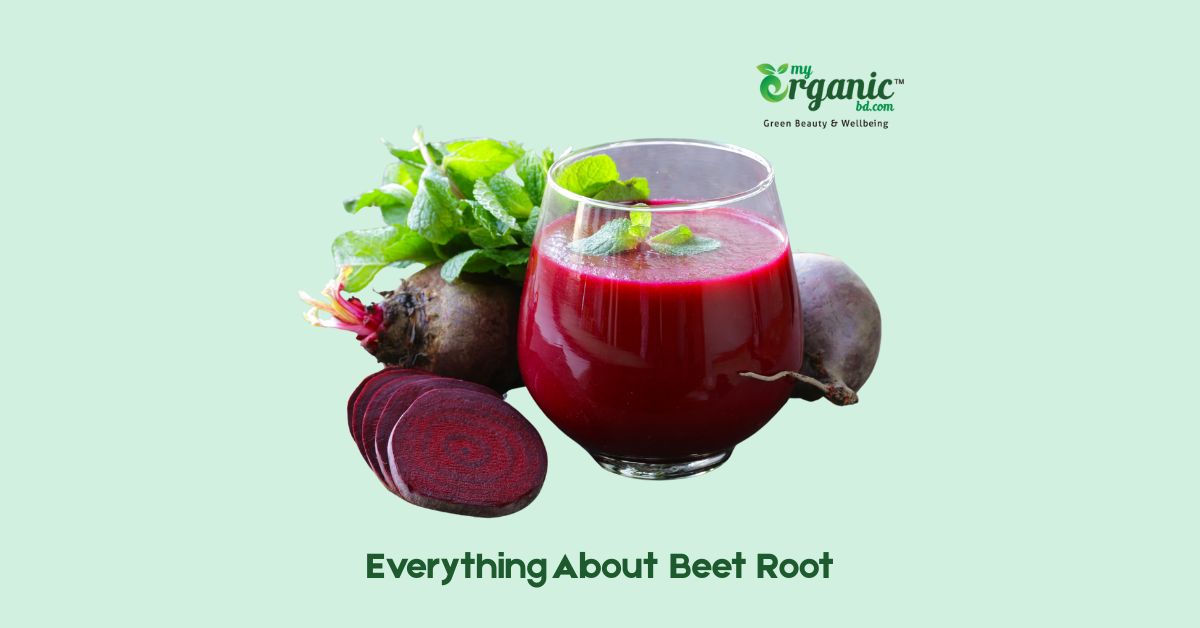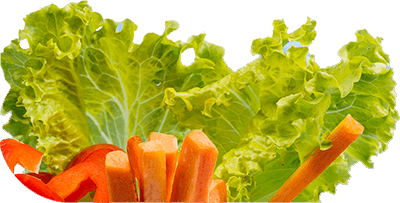Do you lack rhythm in your life? Chomp on some beetroot slices and listen to the Beatles! Well, are we not making things up? Even Aristotle was a great admirer of beetroot. It was loved around the world for its number of uses and benefits. People believed a lot of things about beetroot. Even today, it is one of the most popular foods in the wellness industry. But should it get so much attention?
Well, yes! Beetroot is highly nutritious, containing vitamins, minerals, fiber, and many more healthy plant molecules. The list does not end there, there are even some secret virtues of beetroot 😉 We will reveal all in this article.
Let’s meet first. We are a group of expert nutritionists, wellness coach, doctors, and food microbiologists working together to create some of the best wellness articles on the internet. We try to go deep into the amazing foods without being too hard to understand. If you are used to the industry and basic biology, this article should translate to you like a story.
In this article, we will go through all the detailed benefits of beetroot. Doesn’t it get too boring to talk about all health? No worries; we will also take you to the interesting facts, history, uses, and every question people could ask about beetroot.
Keep your eyes on the lines. Let’s start.
Is Beetroot a Superfood?
Beetroot has all the traits to be called a superfood. Nothing like magic, but it surely poses some useful tricks for our health and wellness. How can we call it a superfood? What are the criteria for it? Well, there is no universal criterion that everyone agrees on. We did not find any BTW. But a lot of people are interested in the term. So, we made our own criteria depending on the logical process. You can read the original article, the basics of Superfood.
But in short, a superfood must have at least one of those traits— first, it has a diversity of nutrients; second, it has a large number of rare nutrients; and lastly, it has a special ability. A super food should have at least one of those traits. Beets contains a moderate variety of nutrients and several abilities, such as decreasing blood pressure and boosting the power of physical activity. It also contains a high amount of dietary fiber, which strengthens its position in the superfood criteria.
History of Beetroot
Historians believe that beetroot was domesticated about 8 thousand years ago. It’s about 2 thousand years after the agricultural revolution started. At first, the beetroot was a root-like veggie slightly thicker than regular roots. With a thousand years of breeding in the hands of humans, it got a pretty round shape. In old times, beetroot was used for many different purposes, such as dyeing, skincare, treating constipation, better blood circulation, etc. That evidence was found in the writings of ancient Roman physicists and naturalists. A painting of beetroot was found on the wall of a Greek brothel from 79 BC. This is particularly interesting as beet was used for increasing sexual ability. Greek philosopher Aristotle was an admirer of the benefits of beetroot. A description of the beet was found in Aristotle’s texts. Another interesting fact is that beetroot was planted in the Hanging Gardens of Babylon. Throughout history, beetroot has always been used as a vegetable and wellness supplement, but it actually never received extraordinary importance to shape any culture. Let’s end the history part with the astronomical beetroot. In 1975 Apollo-Soyuz Test Project, astronauts of Apollo 18 were greeted with beet soup.

Nutritional Facts
Here are the nutrients and component lists of one cup or 28 grams of beetroot.
Calories: 43 (2% DV)
Water: 88%
Protein: 1.6 grams (3% DV)
Carbs: 9.6 grams (3% DV)
Sugar: 6.8 grams
Fiber: 2.8 grams (10% DV)
Fat: 0.2 grams (0% DV)
Folate (vitamin B9): High (37% DV)
Manganese: High (16% DV)
Potassium: High (9% DV)
Iron: High (4% DV)
Vitamin C: Moderate (7% DV)
Betanin
Inorganic nitrate
Vulgaxanthin
As you can see, beetroot comes with a wide range of nutrients. Actually, no food is good alone. Every great food becomes great when it’s consumed as part of a healthy diet. Let’s discuss the major nutrients of beetroot in the next section.
Explanation
Calories: Beetroot is a very low-calorie food, which makes it suitable for weight loss diets. Beetroot provides all the nutrition without the burden of chicory.
Protein: Beetroot is not a good choice for protein. In one cup of beetroot, there are about 1.6 grams of protein. It is not much, but it is surely a small contribution to your daily protein intake.
Carbohydrates: Carbs are the main source of beetroot’s energy. One cup of beetroot slices can provide 9.6 grams of carbohydrates, which is about 3 percent of the daily requirement.
Sugar: Beetroot comes with a small amount of sugar. The sugar from beet does not increase the level of blood sugar.
Fiber: Only one cup of beet contains about 10% of the daily fiber requirement. Fiber is essential for digestion and gut health and also has the ability to regulate blood sugar.
Fat: Beetroot is a very low-fat food, making it ideal for low-calorie diets.
Folate: This super vegetable is a rich source of folate. Folate works to construct DNA and genetic materials. It also reduces the chance of genetic defects. Folate is a vital component for pregnant women. It also has a role in cardiovascular health.
Manganese: Beet has about 16% of the daily manganese requirement. Manganese is a vital mineral that plays an essential role in healing, energy production, and strength. Manganese is also required for healthy bones and cartilage. It also plays a defensive role for the antioxidants.
Potassium: Potassium is an essential mineral for heart health, muscle contraction, and nerve function. One cup of beet contains 9% of the daily potassium value.
Iron: Iron helps oxygen be transported throughout the body. It is a core component of hemoglobin. It pairs with vitamin C and works for the immune system, energy production, and recovery.
Vitamin C: Vitamin C is one of the most essential nutrients for the immune system. It increases the absorption of Iron, recovers skin cells, and fights free radicals. Super veggie beet has a moderate amount of vitamin C.
Betanin: This is the component that gives beetroot a deep purple color. It has the ability to detoxify the liver and reduce inflammation. It is also a powerful antioxidant and effectively protects the cell from free radicals.
Nitric Acid: Nitric acid is another key component of beetroot. It relaxes the blood vessels and promotes overall heart health and blood flow. Nitric acid contributes to beetroots’ blood pressure-reducing ability.
Vulgaxanthin: This is another plant component that may have detoxifying and antioxidant effects on the body. It may also contribute to anti-inflammatory effects.

Health Benefits Of Super Vegetable Beet
Health Benefits of Super vegetable Beetroot
Discussing the nutrients and components is not enough for a proper understanding. Let’s go through each benefit of beetroot and what to expect from it.
Reducing Blood Pressure
Beetroot contains nitric acid, which signals the brain to relax the walls of blood cells. This results in smooth blood flow throughout the body and heart. Research suggests beetroot helps with both systolic and diastolic blood pressure. The folate content may also play a role in reduction of reducing blood pressure. Beetroot may be good for the heart, but it is not an alternative to any blood pressure drug. Beetroot may also interact with blood pressure medicine, causing the pressure to drop too low.
Antioxidant
This super vegetable contains some of the most powerful antioxidants. Vitamin C, Betanin, and Vulgaxanthin are the major antioxidants of beetroot. Antioxidants play a crucial role in our overall wellness. They protect our cells from oxidative damage, prevent premature aging, and protect us from chronic diseases. So how do antioxidants work? Our bodies have to deal with free radicals that enter our food and are produced by our bodies. Free radicals seek electrons to be stable. They steal electrons from body cells and cause oxidative stress. Antioxidants provide electrons and neutralize them. The more variety of antioxidants you take, the better it is for the body. Beet has a good range of antioxidants.
Liver support
Beetroot is one of the best superfoods when it comes to liver health. It has betalains, which have multi-effects for liver health. It improves liver function and detoxifies the liver faster. It is also involved with bile production and stopping fat buildup in the liver. Consuming beet regularly potentially reverse fatty liver. High antioxidant contents are also vital for liver health.
Digestive Health
One cup of beetroot contains about 2.8 grams of fiber. Fiber is a crucial element for overall digestive health. Fiber adds bulk to the stool, and it is also friendly for the gut lining. Fiber is also good for the gut wall. It reduces the chance of colon cancer and chronic digestive disease. Fiber also increases nutritional absorption while providing food and an environment for the gut bacteria.
Can Increase the Ability of Physical Activity
Beetroot contains a good amount of nitrate, which can improve athletic ability by increasing the efficiency of mitochondria. This can be beneficial in several different ways. can increase cardiorespiratory efficiency and endurance. This can be helpful for athletic and sexual ability. According to research, beetroot juice improves the performance of cyclists.
Sexual Ability
Better blood flow due to nitrate plays a noticeable role in sexual ability. Blood circulation in the sexual organs improves sexual ability, especially for men. Beet also contains boron, which is a key material to produce estrogen and testosterone. Those are the main components of reproductive health.
Brain Health
This super vegetable increases the blood circulation in the brain, which may have a positive impact on the brain health. You will be able to engage with more brain power for longer period. Beetroot also has nitrate, which increases the motor function and reduces the response time of muscles. Vitamin B9 (folate) is also a vital nutrient that is essential for brain and cognitive function. The high antioxidants of beetroot may also contribute to the protection of sperm and egg cells.
Anti-inflammatory
Beet contains betalains, which are responsible for its deep red color. Betalains have the ability to reduce inflammation. High antioxidants also play a critical role in protecting from inflammation.
Cancer protection
According to some test tube studies, beetroot has the ability to stop cancer cells. It also contains Betanin, rutin, ferulic acid, and kaempferol. Those also have the potential to protect the body from cancer. Further research is needed for more reliable information.
Disadvantages of Beetroot
Beetroot is highly nutritious. It contains tons of benefits for the body. But there are some drawbacks everyone needs to be aware of. This contains oxalates, which may contribute to kidney stones. Oxalate forms calcium oxalate stones in the kidney. However, if you are eating in moderation, there is not much to worry.
Beeturia is a common condition caused by eating a good amount of beetroot at once. This turns your stool and urine red. It is completely safe. But if you are unaware, red urine can easily frighten you.
Due to beetroot’s ability to reduce blood pressure, it may cause the blood pressure drop too low with medicine. Eating too much beet may cause allergies for some people. And lastly, the nitrate content of beetroot is not suitable for pregnant women. It may cause headaches, dizziness, and other symptoms.

Uses of Beetroot
Beetroot is primarily used as a salad. It works well with almost all types of vegetable and fruit salad. Beetroot pickles are also a popular item you can make with it. It can be roasted, boiled, steamed, or cooked with any vegetable dishes. Cooking removes a significant amount of oxalates from it. You can also make colorful baked products with beetroot. Its taste does not cause any issues with sweet foods. Beetroot juice can also be used as a natural food color.
Taste of Beetroot
Beetroot is something that doesn’t go with the word delicious. But it’s fresh and feels good to eat. It has a mild, earthy aroma with slight sweetness. It plays roles like a cucumber with a different taste in a salad. Cooking and processing improve its taste. As it does not have a strong smell or taste, you can really be creative with beetroot.
Natural Beetroot in the Wellness Industry
Natural beet is moderately popular as a wellness food. It is more popular for its liver-healing attributes. Beetroot is not as popular as supplements, but you can still find a few beetroot extract products in the market. To get the best out of beetroot, it should be consumed fresh and raw. But if you don’t have fresh ones, beetroot extracts can be an alternative.

Future of Beetroot in Human Civilization
In the future, beetroot is very likely to gain steady popularity. From the Google Trends data, the popularity of beetroot is growing consistently. As people are more conscious about health than ever, super vegetables like beetroot will be prioritized in their regular healthy diet. You can learn more about healthy diet – benefits, tips & Nutrients need. Beetroot dishes may become trendy in restaurants, and more beet wellness products will available.
Conclusion
There are very few things to dislike about super veggie beetroot— it’s colorful, fresh, and packed with a whole lotta nutrients. It can be a great addition to your wellness diet, but remember the considerations. We tried to present an insight that you can read in one sitting. Hope that helped.
Want to learn more about other super vegetables? Check out Super Vegetables: List, Health Benefits, Types, Wellness, & More.
FAQ: Detailed
Here are some of the questions people often ask about this awesome veggie –
What is the difference between beet and beetroot?
Beet and beetroot are the same vegetable. There are many different types and colors of the vegetables. But all of them can be called beet or beetroot. The word beet is more popular in the United States, while beetroot is used in other English-speaking countries.
Is it okay to eat beetroot every day?
Eating beetroot every day can be harmless if you eat a moderate amount. Eating too much may cause health consequences like low blood pressure, stomach upset, etc.
Is beetroot high in sugar?
No, regular beetroot is not high in sugar. 128 grams or one cup of beetroot contains 6.7 grams of sugar.
Who should not take beetroot?
People who have or have kidney stone problems should not eat beetroot, as it contains high oxalates. Pregnant, blood pressure patients should not eat beetroot without doctor advice.
Is beetroot good for hair?
Yes, eating and applying beet both have good effects on the hair. It contains antioxidants that reduce oxidative stress and strengthen the hair follicle.
Can beetroot reverse fatty liver?
Beetroot contains betaine, which has the potential to improve the function of the liver. Research suggests it can reverse a non-alcoholic fatty liver.
Does beet juice affect blood pressure medication?
Yes, beetroot has the ability to lower blood pressure, which may interact with blood pressure medicine.
Why do I feel so good after drinking beet juice?
Beetroot has a refreshing taste, and it increases the blood flow in the brain. Those may contribute to a good feeling after eating it. This may also be the placebo effect.
Mr. Shariful Alam Pavel believes in natural living. To live a healthy conscious living, we need to eat green, live green. MyOrganic Bd is a green wellbeing brand, educating millions to live a better life with mother nature.
- Shariful Alam
- Shariful Alam
- Shariful Alam
- Shariful Alam
- Shariful Alam
- Shariful Alam
- Shariful Alam
- Shariful Alam
- Shariful Alam
- Shariful Alam
- Shariful Alam
- Shariful Alam
- Shariful Alam
- Shariful Alam
- Shariful Alam
- Shariful Alam
- Shariful Alam
- Shariful Alam
- Shariful Alam
- Shariful Alam
- Shariful Alam
- Shariful Alam
- Shariful Alam
- Shariful Alam
- Shariful Alam
- Shariful Alam
- Shariful Alam
- Shariful Alam
- Shariful Alam
- Shariful Alam
- Shariful Alam
- Shariful Alam
- Shariful Alam
- Shariful Alam
- Shariful Alam
- Shariful Alam
- Shariful Alam
- Shariful Alam
- Shariful Alam
- Shariful Alam
- Shariful Alam
- Shariful Alam
- Shariful Alam
- Shariful Alam
- Shariful Alam
- Shariful Alam
- Shariful Alam
- Shariful Alam
- Shariful Alam
- Shariful Alam
- Shariful Alam
- Shariful Alam
- Shariful Alam
- Shariful Alam
- Shariful Alam
- Shariful Alam
- Shariful Alam
- Shariful Alam
- Shariful Alam
- Shariful Alam
- Shariful Alam
- Shariful Alam
- Shariful Alam
- Shariful Alam
- Shariful Alam
- Shariful Alam
- Shariful Alam
- Shariful Alam
- Shariful Alam
- Shariful Alam
Dr. Goutom Banik, MBBS, MPH, is a public health researcher with extensive experience in maternal, newborn, and child health, including nutrition interventions in underserved communities. He has worked with leading organizations such as Save the Children and icddrb, contributing to national strategies on child health and nutrition. His expertise spans operational research, health systems strengthening, and community-based programs addressing childhood illness.
- Dr Goutom
- Dr Goutom
A Microbiologist, full time Content writer in MyOrganic Bd relentlessly trying people aware green lifestyle. Apart from working MyOrganic, he is an Environmental activitist.
- Digbijoy Azad
- Digbijoy Azad
- Digbijoy Azad
- Digbijoy Azad
- Digbijoy Azad
- Digbijoy Azad
- Digbijoy Azad
- Digbijoy Azad
- Digbijoy Azad
- Digbijoy Azad
- Digbijoy Azad
- Digbijoy Azad
- Digbijoy Azad
- Digbijoy Azad
- Digbijoy Azad
- Digbijoy Azad
- Digbijoy Azad
- Digbijoy Azad
- Digbijoy Azad
- Digbijoy Azad
- Digbijoy Azad
- Digbijoy Azad
- Digbijoy Azad







